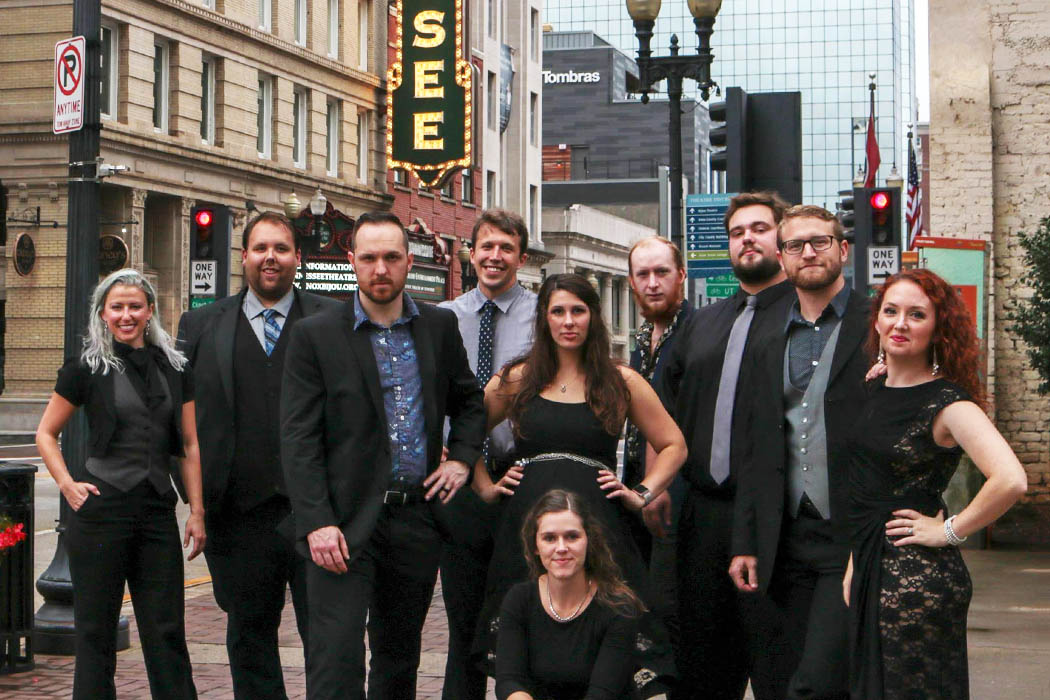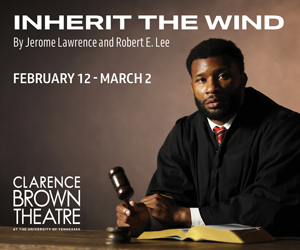When it began almost 20 years ago, the revitalization of downtown Knoxville was simply about restoring classic older architecture for contemporary use—and uses. At some point—at some moment of realization— people began to discover that much more was happening. The ineffable joy and satisfaction of witnessing beauty reemerge in restored bricks, stone, and old wood began to translate into an evolving local personality, one now driven, not by commercial gimmicks, but by a blossoming creative energy. The Knoxville arts and music scene became a co-participant in this evolution with the city, supplying atmosphere and drawing support, the two now inextricably bound.
In this atmosphere of arts growth, new theatre and music groups have emerged onto the local scene, representing thresholds being crossed for the first time and creative niches being filled. One such group is Symphony of Voices, an 11-member professional choral ensemble independent of any umbrella organization, that is seeking to fill what is, admittedly, a void in Knoxville’s music scene.
The ensemble’s inaugural concert last Sunday afternoon at First United Methodist Church offered a tantalizing glimpse at the group’s indisputable potential to fill that void. Although still exploring the angles and possibilities in creating a repertoire for themselves, Symphony of Voices enjoys some very important assets—a wealth of solo-quality voices that are able to perform impressively as a well-matched ensemble with a rich sense of musicality.
Their program, entitled “Unclouded Day” after the concluding work on the program, was not shy in tackling a range of styles, genres, and complexities. This program ran the gamut in short form numbers from 19th Century European to American musical theatre, suggesting that they are still trying things on for size. For example, an imaginative arrangement of the Beatles’ “Blackbird” by ensemble member Matthew Parks was a splendid find, yet the group seemed most secure with works originally written as choral music.
Eric Whitacre’s Alleluia was marvelously intricate and transporting, an entertaining contrast to the 19th Century solidity of Josef Rheinberger’s Abendlied. A Moses Hogan arrangement of “My Soul’s Been Anchored in the Lord” caught the audience’s attention as the concert opener. Less successful on an energy and clarity level were the Broadway show numbers, although “You Will Be Found” from Dear Evan Hansen was an excellent example of solo voices successfully interwoven with the ensemble. Selection of repertoire is always a matter of constant discovery and exploration, something that will obviously be an ongoing part of Symphony of Voices existence.
Given the group’s size, I couldn’t help but imagine them successfully taking on Bach cantatas in the small ensemble size configuration that has been legitimized by recent Bach performance scholarship and made endlessly entertaining by proponents such as Joshua Rifkin and his Bach Ensemble.
Wherever the future leads the Symphony of Voices, they are well-positioned to fill a niche in the ongoing local music scene evolution—a challenge that we hope they will eagerly accept.
Sopranos: Jaclyn Johnson, Andrea Markowitz, and Rachel Owens
Altos: Caitlin Bolden and Hailey Parks
Tenors: William Brimer, Matthew Parks, Seth Tinsley
Basses: Paul Bryson, Harrison Cooke, Tyler Owens






